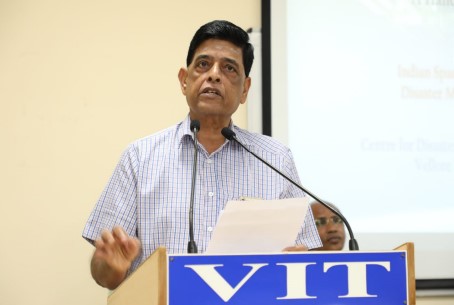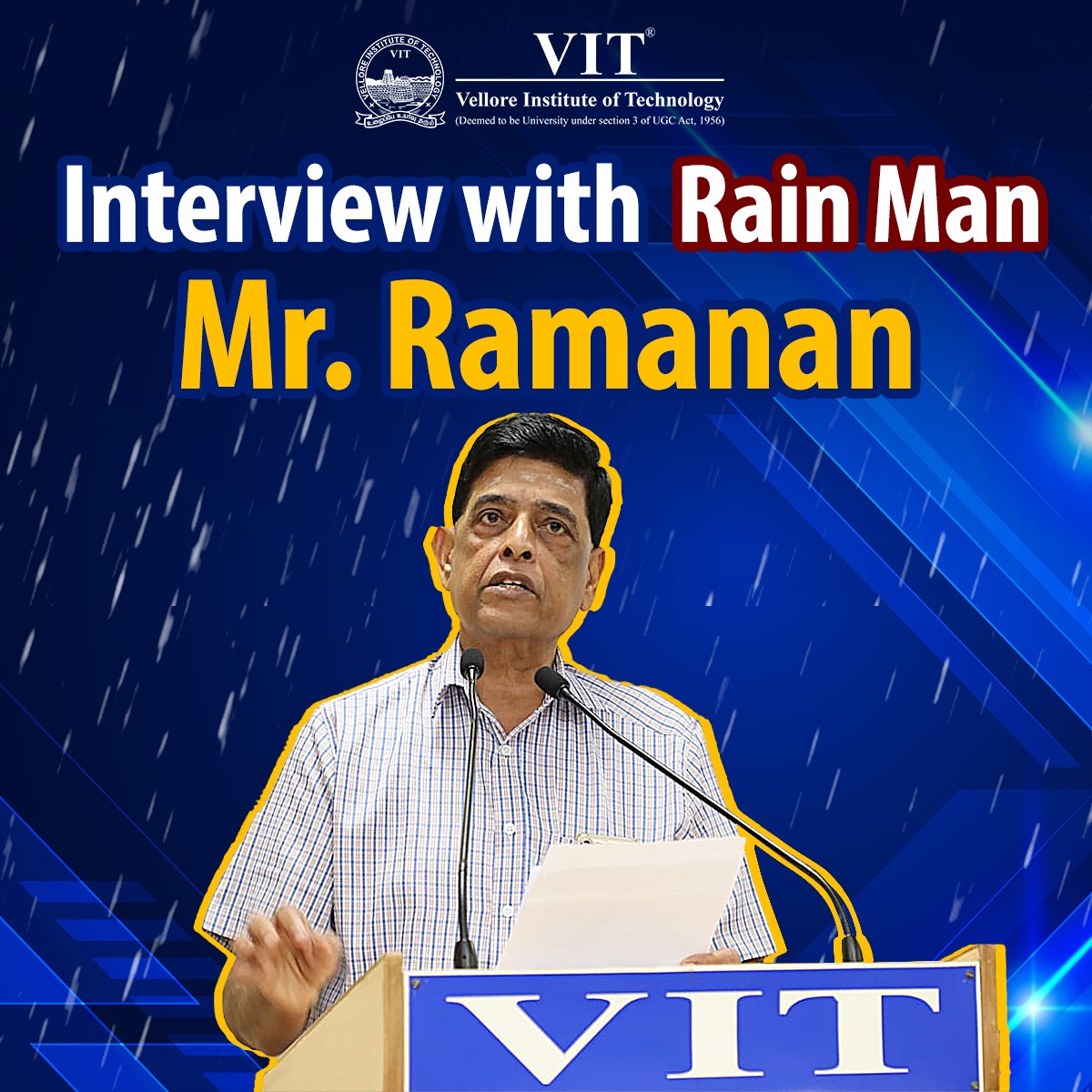Mr. Ramanan Interview
No models can accurately predict the amount of rainfall - Rain man Ramanan
It has been 8 years since the rain man of Tamil Nadu officially retired from the Indian Meteorological Department (IMD) as the Regional Head but the memories of Mr. Ramanan appearing in television and briefing us on the status of the rains refuses to fade away.
No wonder students across the State love him. He was popularly named as “Mazhaiyin Mahatma” and “God of Students”. When he was on television, they watch with bated breath, anticipating words that could mean the possibility of a holiday the next day.
The State’s most popular weather forecaster talks to S. Sudarshan on wide array of topics.

Mr. Ramanan, retired Regional Head, Indian Meteorological Department (IMD)
Excerpts from the interview:
1) Sir, what made you choose a career in Weather Management?
After completing my Masters in Physics ie M.Sc (Physics), I was wondering what to do next. Most of my classmates became teachers’. That was the time when +2 (grade 12) was introduced in Tamil Nadu (prior to that, it was PUC) and that means there was a huge demand for teachers’ in the areas of Maths, Physics & Chemistry from Govt, Aided & Private Schools. In fact, some of my classmates got offers even before finishing their degrees.
I did not want to take that conventional route. Right from my childhood, I had a passion for weather because I used to like Geography. Since I studied Physics and had a passion for climate, weather and geography, I thought my passion would be fulfilled if I join Meteorological department and it has indeed fulfilled, I would say.
2) Today, we see a lot of Private Weather forecasters and we also find their forecasting, close to accuracy. In such scenario, what is the relevance of Meteorological Department?
Today, if you want to know about weather and the forecast, you get all the information over the internet. There are several models that you will find in the internet and based on this, anyone can predict the forecast. However, it is the data taken by the different agencies like National Meteorological Services by various countries helps in creating the models. Without the data, we cannot source the models and in turn cannot forecast the weather. These data are privy to the department and that is why MET Office is still and will always be relevant.
3) The Indian Meteorological Department (IMD) for long has been facing several criticisms and flak pertaining to the forecasting. Even recently, there was a huge uproar on the poor prediction of Tuticorin floods. Globally, where does IMD stands when it comes to the technological advancement for predictions?
Look, forecasting is a tricky issue. Even in an advanced country like the USA, if a tornado happens, we will get notifications, only 40 minutes in prior. Secondly, two model outputs will not be the same always because the quantum of data that is fed would be different; the principles of physics used in every model would be different; the capacity of the computer would also be different. Therefore, the outputs from two models would vary. However, there is a slightest chance of all outputs being the same and if that happens, the prediction would be accurate. None of the model is going to give accurate information like this many cms of rain would happen at this time etc as we cannot be accurate with nature.
So, there are some Standard Operating Practices that we have at IMD and we follow that. Today, if there is a forecast of 20 Cms in a day, we say “Extreme Rainfall would occur”. By the way, the department did predict regarding the Tuticorin floods.
To answer your questions, the facilities and technology advancement at IMD is at par with any leading MET stations in the World.
4) Can you tell us, how someone actually predicts and calculates the rain?
Firstly, as I said the forecasting happens with the data and exchanging of data, facilitated by the World Meteorological Organization. Before the advent of internet, the meteorological telecommunication system was the biggest network in the World. We used to have centres in USA & UK where the data used to be fed in their system and then the analysis used to happen.
Today, we have all model outputs available in apps and internet and that is where the private weather bloggers source, make their analysis and come up with their version.
5) A lighter one! Today, we live in an era where anything and everything has a meme; you not only have a strong fan base among students but also among lot of people across different strata. You were both celebrated and sometimes criticized. On days when you were criticized, how did you take it?
See, whatever communication I made in TV or Radio is not my personal opinion. It is the department communication and I happen to lend the official voice to it. For example, if it is low pressure on the coast, it will rain in the late night and early morning and not during the day time, which means the holidays that were declared are for the rains that had already happened and not for the day rain. At the end of the day, students need to come to the school safely and return.
To answer your question, I do not take any of the criticisms personally and that has helped me to move on.
6) This is your maiden visit to VIT campus? Your thoughts about the campus
VIT is truly a wonderful campus. The ambience is conducive for learning with state-of-art facilities and the students would love to spend their time here.


